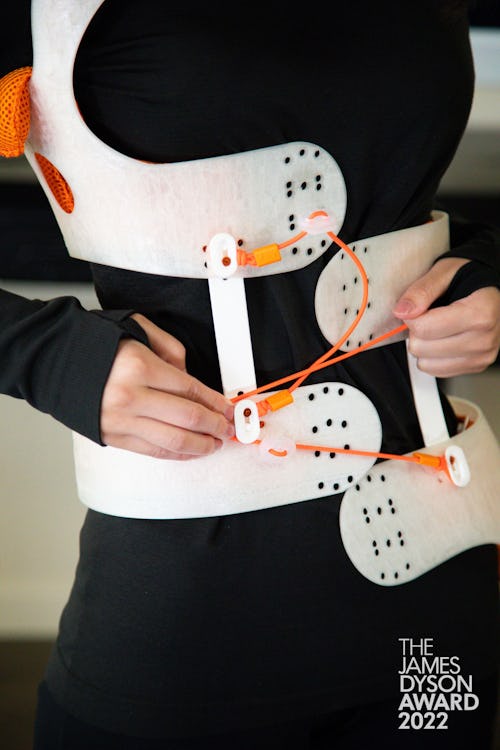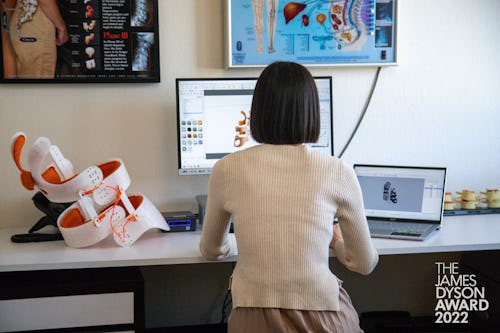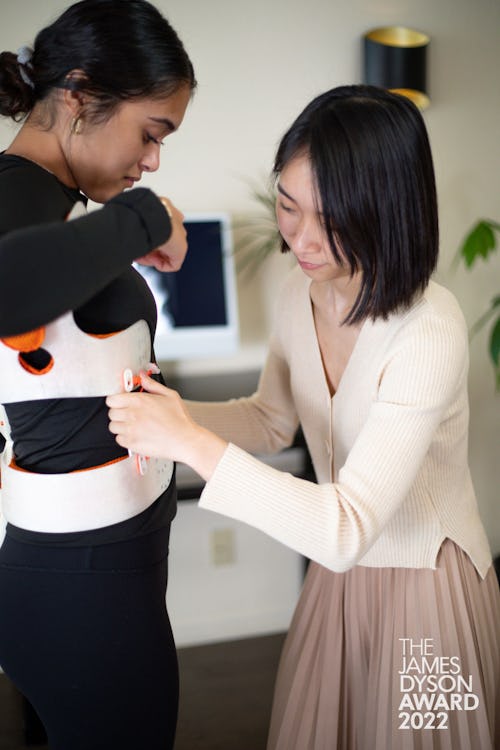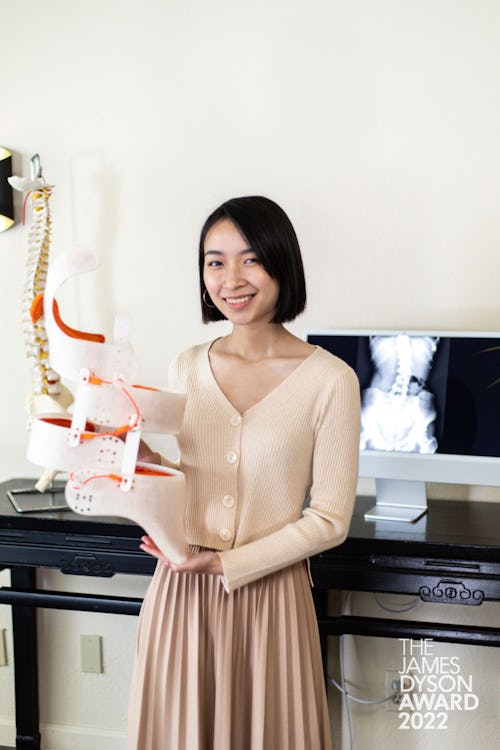
The James Dyson Foundation has announced the U.S. winner of this year’s James Dyson Award: a customizable scoliosis brace that can accommodate patient growth for up to three years. The “Airy,” designed by Sangyu Xi, can be set up and adjusted at home, and it even includes app connectivity to monitor healing and wear time.
The general limitations of scoliosis braces — many of which use designs created as far back as the 1950s — inspired Sangyu’s work. Her mother’s work in medical device sales, she says, showed her she could use her design skills to create something that could help someone “have a different life.”

Sangyu says she learned early on that designing is an activity that allows her to focus for long stretches of time. A visit to NYC’s Museum of Modern Art showed her she could actually leverage that skill into a career.

Past time for innovation —
Scoliosis is a large-scale problem in the U.S., affecting about 7 million Americans every year. But this scale hasn’t really led to much design innovation in the braces used to manage scoliosis. Many scoliosis braces utilize a design first created back in the late ‘50s — and they’re not exactly easy to make or wear. Besides being bulky, Sangyu notes that the current brace design is, well, ugly. With 87 percent of scoliosis diagnoses seen in teen girls, aesthetics are an important consideration in such a brace.
Airy solves many of these design issues. The color of the brace can be modified to make it more attractive to wearers, and padding can even be removed to make it translucent. It’s created with long-term comfort in mind, too; its fit can be customized right at home as the patient grows, whereas a traditional brace would need to be replaced and re-fit throughout the treatment process.
Now for the big time —
A prototype of Airy has already received “extremely positive” feedback from teen patients at the Cincinnati Children’s Hospital, according to a press release. As the winner of the national James Dyson Award, Sangyu will receive $6,600 to continue patient trials; she also hopes to bring on a machine learning engineer to work on the Airy app and an orthopedic mentor to bring the device to market.
Runners-up to the national prize include “Apt” — a pregnancy test that can be used by those with visual impairments — and “AgZen,” a pesticide spray system that helps chemicals better reach their targets.








